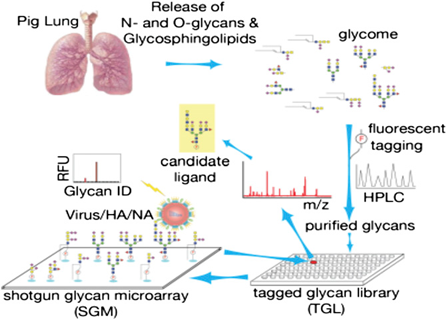Donor antibodies, administered intravenously or subcutaneously, make up a commercial product used to treat both immunodeficiencies and inflammatory or auto-immune diseases.
These preparations contain a complex mix of antibodies against glycans, the carbohydrate molecules on the outsides of cells, a Jan. 7Â paper in Science Translational Medicine reveals.
At first glance, the findings are remarkable because:
A. Immunologists have long thought that carbohydrates, by themselves, are not good at provoking the immune system. (The assumption was: you need some protein for antigen presentation and getting T cells interested.) The data shows exceptions to the rule.
B. Some of the antibodies react against human carbohydrate structures. Instead of attacking them in an auto-immune fashion, they may actually be blocking viruses or bacteria from using those structures as gateways to infection.
The lab of Stephan von Gunten at the University of Bern collaborated with the National Center for Functional Glycomics led by biochemists Rick Cummings and David Smith at Emory to analyze the spectrum of carbohydrate structures bound by donor antibodies. Read more






